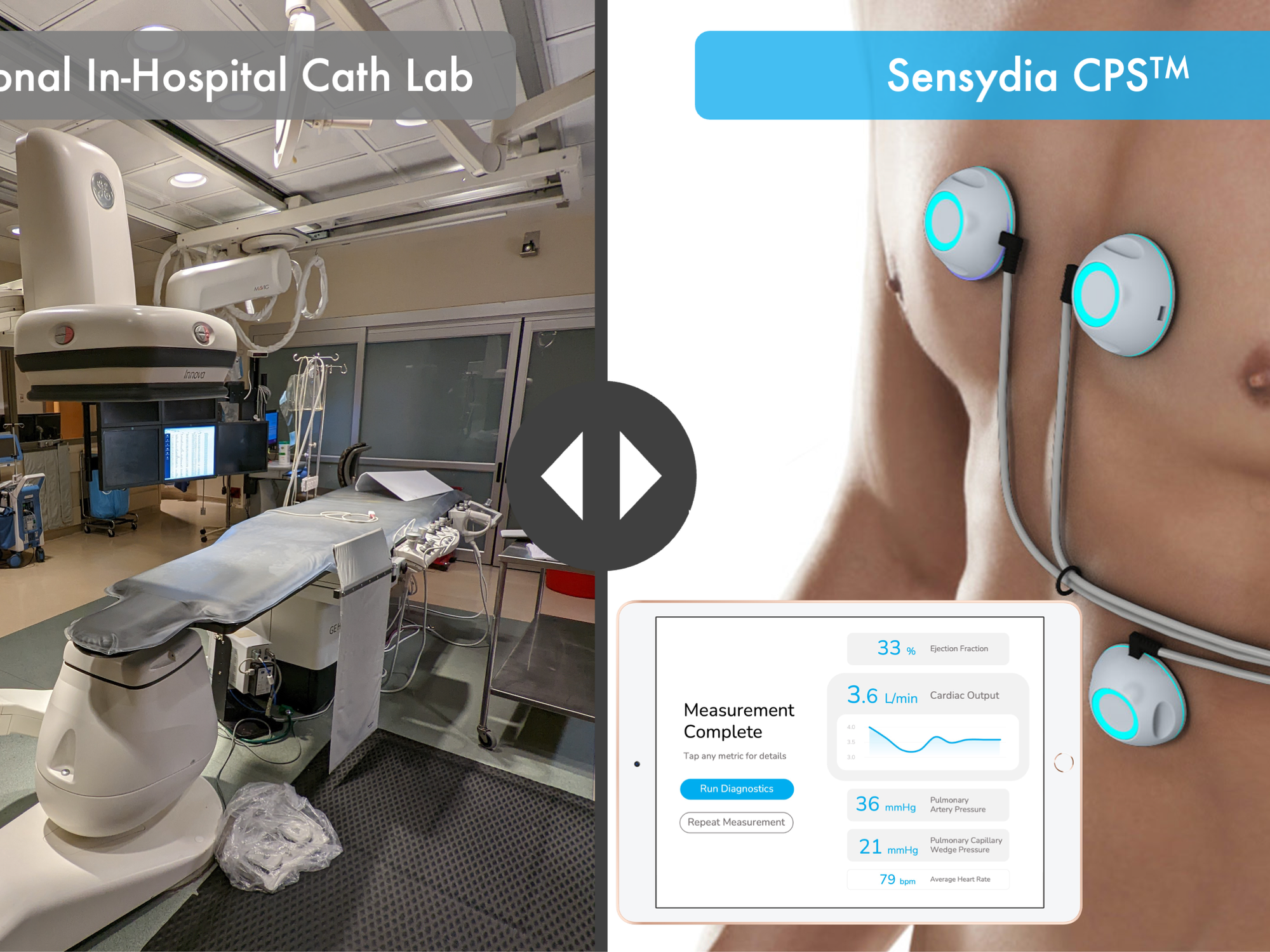Sensydia Raises $8 Million To Revolutionize Heart Disease Screening
Samson Amore is a reporter for dot.LA. He holds a degree in journalism from Emerson College. Send tips or pitches to samsonamore@dot.la and find him on Twitter @Samsonamore.

More than six million U.S. adults are currently living with heart failure. By 2030, that number is expected to climb to nearly 8 million.
Currently, the way to test for heart failure is a painstaking process known as cardiac catheterization.
Simply put, the procedure involves inserting a tiny tube into a blood vessel in someone’s arm or leg and injecting a dye that’s visible to an X-ray. Pressure and flow of blood in the heart are measured, and the photos taken via X-ray show where the heart or arteries are damaged or blocked. Hazards of the process include strokes or heart attacks, tearing arterial lining or blood clots.
The process is also “really expensive, it takes up to tens of thousands of dollars to do it, and it’s invasive,” explained Anthony Arnold, CEO of Westwood-based Sensydia. Which is why Arnold is developing and testing an alternative approach. Sensydia’s Cardiac Performance System (CPS) uses biosensors and artificial intelligence to scan for irregularities in a person’s heart. The biotech company just raised $8 million to continue development on its technology.
“These are very exquisitely sensitive biosensors, microphones, in essence, and the data they collect is a tremendous amount of data, Arnold said “My engineers tell me that from those four sensors and 10 heartbeats, we may have 30,000 discrete, identifiable features that happen in everybody’s heartbeat.”
Arnold noted that it’d be impossible for a human to sort through all that data in a timely manner. But once the AI has made its conclusions, a qualified doctor makes the final diagnosis. “It’s not just a needle in a haystack, sometimes we need a combination of three or four needles,” referring to the data points in a reading that could lead to a patient’s heart failure diagnosis.
Then, according to Arnold, “you train the computer on what you’re looking for and let it help you sniff out the features and classifiers that are the right ones to correlate. It can be immensely more efficient [and] eventually we see this being done in the cloud.”
The technology was designated a breakthrough device by the U.S. Food and Drug Administration in January 2022. “There was a time when it was very hard for startups to deal with FDA, but I'd say for quite a while FDA has been relatively startup-friendly,” Arnold added. Alongside going towards device development, Arnold said some of the funding will be used to attain full FDA certification by 2024.
Sensydia’s May 9 raise was led by Orlando Health Ventures. New York-based Colle Capital Partners and Utah-based Frontier Venture Capital also joined. Arnold said Sensydia has raised $17.5 million since its launch in 2015.
While AI is a hot topic now, Arnold said that the plan at Sensydia was always to incorporate machine learning into its sensors. “It was always an AI play,” he said.
In fact, the company was originally part of UCLA’s Technology Transfer program, which exists to back and develop startups led by entrepreneurs from the university. Sensydia founder and chief medical officer Dr. Aman Mahajan was the chair of UCLA’s medical center until 2018, when he began working for the University of Pittsburgh.
Arnold said that once the devices are certified Sensydia plans to sell them to emergency rooms, hospitals and specialist physician offices, as well as to primary care physicians with older patients. Eventually, the goal is for the CPS to be in mainstream pharmacies like Walgreens, just as blood pressure monitors are.
“We haven't even scratched the surface of what we can do with AI in healthcare,” Arnold said. “ I think the broader applications will be to comb through masses of data from multiple health systems – [and] insurers are probably uniquely suited to do this – to really uncover paradigm-shifting ways to treat patients.”
- LA's Biotech Companies Lead the Way in AI-Integrated Wellness ›
- Conversational AI Startup mPulse Mobile Expands As Health Care Embraces Chatbots ›
- Regard Raises $15M for AI-Powered Software That Help Doctors Diagnose Patients ›
- Venture Cash Is Pouring Into AI that Can Diagnose Diseases. Doctors Aren’t Sure They Can Trust It. ›
Samson Amore is a reporter for dot.LA. He holds a degree in journalism from Emerson College. Send tips or pitches to samsonamore@dot.la and find him on Twitter @Samsonamore.





 Image Source: Tinder
Image Source: Tinder Image Source: Apple
Image Source: Apple